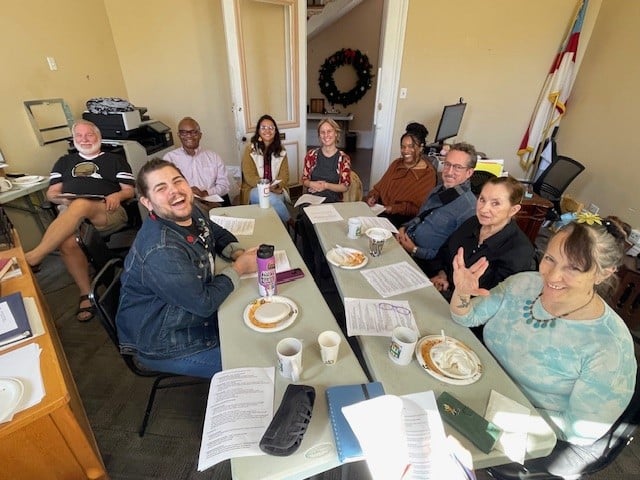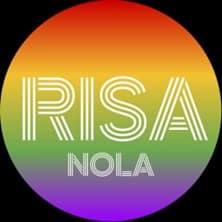 This is the second installment in a series about RISA-NOLA, a Rainbow Initiative Community (RIC) associated with St. Anna’s Episcopal Church in New Orleans. Like other groups formed under the aegis of EMM’s Rainbow Initiative, RISA-NOLA emerged as a local response to the call of The Episcopal Church to raise awareness of and provide aid to LGBTQ+ forced migrants. Read Part 1 here.
This is the second installment in a series about RISA-NOLA, a Rainbow Initiative Community (RIC) associated with St. Anna’s Episcopal Church in New Orleans. Like other groups formed under the aegis of EMM’s Rainbow Initiative, RISA-NOLA emerged as a local response to the call of The Episcopal Church to raise awareness of and provide aid to LGBTQ+ forced migrants. Read Part 1 here.
* * *
Becoming a Rainbow Initiative Community (RIC)
By way of personal connections, people at St. Anna’s Episcopal Church in New Orleans learned about EMM’s Rainbow Initiative (RI) as soon as it was launched in early 2023. Max Niedzwiecki, a consultant for EMM who serves as one of RI’s key facilitators, was a member of St. Anna’s when he previously lived in New Orleans. After parishioners responded to an initial survey circulated by EMM in January 2023, it became apparent to the Rev. Bill Terry, then rector, that there was substantial interest in next steps. Given his upcoming retirement, Fr. Terry encouraged a layperson, Claire Brooks, to rally those interested in learning more about the Rainbow Initiative. 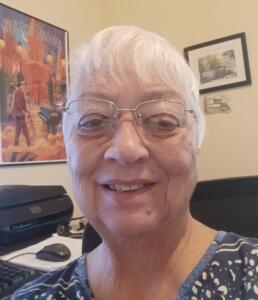
Claire, a former Presbyterian pastor and St. Anna’s parishioner (pictured here), had just retired from teaching English to immigrants at a local Catholic Charities office. She knew Max Niedzwiecki and EMM and had a strong interest in becoming involved in local support for LGBTQ+ asylum seekers.
By summer 2023, some 10-12 people, many attending St. Anna’s and some recruited through other connections, were meeting regularly, to figure out how they could offer aid and increased visibility to LGBTQ+ forced migrants as a Rainbow Initiative Community (RIC). They knew that EMM’s Rainbow Initiative would offer training and support through regular online meetings and digital resources. They also knew that their work as a RIC would be shaped by local opportunities and conditions. RISA-NOLA formed a coordinating committee, who recognized that whatever they ended up doing, they should be open to a range of commitments. Some participants might want to attend every meeting and develop on-going relationships with newcomers, while others might be happy to provide material support and/or participate sporadically.
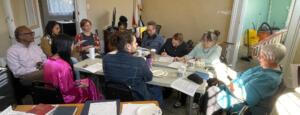
Claire Brooks (above, right) shares her thoughts at an early planning meeting for RISA-NOLA. The group also sought insights from two people who had been instrumental to St. Anna’s longstanding community food pantry and related outreach efforts: Episcopal Franciscan Brother Don Dubay (below, left, in brown) and Deacon Joyce Jackson (below, right).
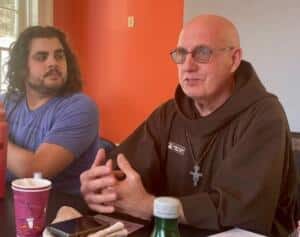
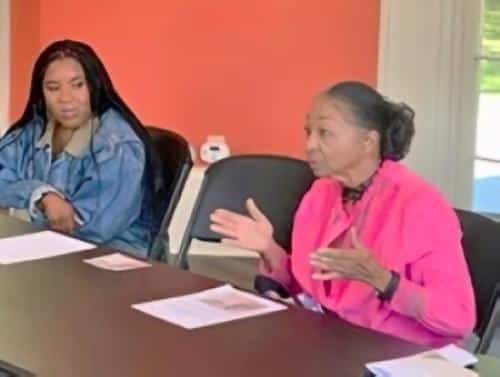
Home is Here NOLA
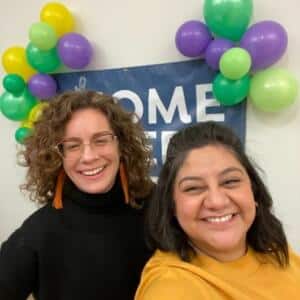 Through a connection made early in their discernment process, RISA-NOLA decided to partner with a local non-profit, Home is Here NOLA. This organization was created by two immigration attorneys who had previously worked for Catholic Charities, Julie Yael Ward and Lilian Johanna Alvarez (pictured here). Their goal was to serve asylum seekers who had no family or friends in the U.S. to rely on.
Through a connection made early in their discernment process, RISA-NOLA decided to partner with a local non-profit, Home is Here NOLA. This organization was created by two immigration attorneys who had previously worked for Catholic Charities, Julie Yael Ward and Lilian Johanna Alvarez (pictured here). Their goal was to serve asylum seekers who had no family or friends in the U.S. to rely on.
Ward and Alvarez were especially aware of the unique vulnerabilities of LGBTQ+ forced migrants, many of whom had been disowned by families, churches, and communities of origin. They knew that people who fled for these reasons were often subjected to further violence. This happened both on the road, where they were shunned by others and attacked or exploited by people seeking to make a profit, and after they entered the United States. Many asylum seekers, once processed by the U.S. Border Patrol, are held in immigration detention, in conditions that are dehumanizing, and that allow further violence or disregard for the specific health needs of LGBTQ+ migrants.
Like all asylum seekers, LGBTQ+ forced migrants are ineligible for any public benefits and unable to work until six months after formally filing the complex application for asylum. Unlike others, LGBTQ+ forced migrants rarely had people in the U.S. who could receive or support them during this time, and thus getting released from immigration detention, and supporting themselves while waiting for work authorization, was for them even more difficult. Some may have traveled to the U.S. with hopes that extended family would receive them, only to be refused and disowned once they came out as LGBTQ+.
Ward and Alvarez knew that to be released, detained migrants had to provide an address and evidence of community support. Thus, they created Home is Here NOLA (HiHN) to be a means of facilitating their release and well-being, by connecting asylum seekers lacking U.S. ties with a community-based support network. 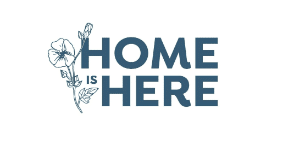 The nonprofit and its volunteers would help them find safe and affordable housing, access essential legal services, and meet basic needs during their first few months after release from immigration detention, while respecting their agency and walking with them toward self-sufficiency.
The nonprofit and its volunteers would help them find safe and affordable housing, access essential legal services, and meet basic needs during their first few months after release from immigration detention, while respecting their agency and walking with them toward self-sufficiency.
Partners in Welcome
When RISA-NOLA was formed in the fall of 2023, Home is Here NOLA (HiHN) had begun to work with local volunteer groups. Recognizing the advantage of working with an established non-profit, RISA-NOLA decided to join HiHN as a community resettlement group. HiHN set up a training for RISA-NOLA participants, helping them understand both the additional vulnerabilities that LGBTQ+ asylum seekers without U.S. ties face and their new responsibilities as a community resettlement group.
HiHN prepares and files the forms needed to obtain asylum seekers’ release from immigration detention and connects individual clients with a community resettlement group. The non-profit provides an orientation to the process of seeking asylum in the U.S. (in multiple languages) and refers newcomers to pro bono legal assistance. HiHN also can sometimes offer temporary lodging, in a shared house that – for LGBTQ+ forced migrants — is a safer alternative to conventional migrant shelters.
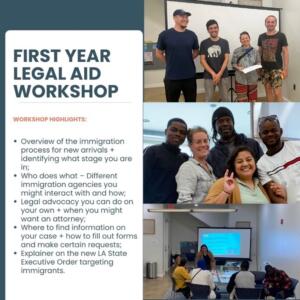
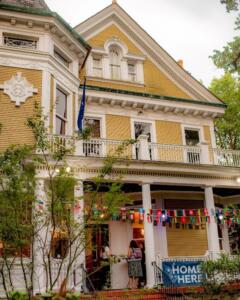
Multilingual workshops on legal aid and temporary housing are just two of the benefits that Home is Here NOLA offers to asylum seekers.
Each community resettlement group signs an agreement to indicate what they will provide to a newly arrived asylum seeker. The RISA-NOLA team decided to refer to these newcomers as “migrant friends.” They committed to providing each “migrant friend” assistance with food and basic needs, public transportation and rides, and rent-free housing for the first three months. They also agreed to help them find ESL classes, employment (when eligible), and low-cost longer-term housing; and to offer a small grant to offset the cost of the first month of self-paid housing. The goal of both HiHN and community resettlement groups is to ease vulnerable newcomers’ transition to living in New Orleans, and to accompany them as they move towards integration and self-sufficiency.
In the next installment of this series, we will follow the RISA-NOLA team as they begin to welcome LGBTQ+ asylum seekers to their city and communities — a deeply eye-opening experience for all.
Click here for Part 3.

